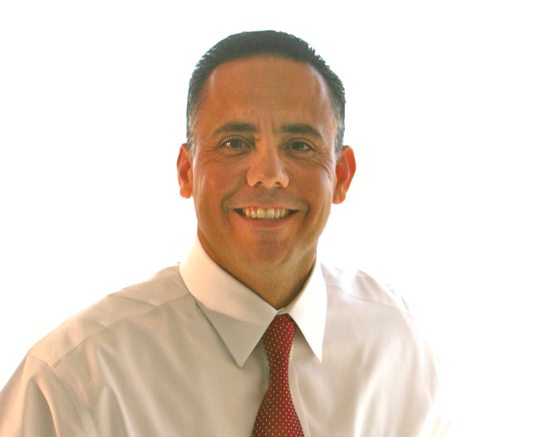Ron Butler
Arizona Managing Partner
Ernst & Young
What were some of the challenges the professional services industry encountered during the recession and what are the challenges during this recovery period?
Some of the early challenges we had, just like all companies, were reacting to change. And it wasn’t change that was gradual, it was change that so abrupt that you had to take a step back, evaluate the business that you had in front of you, figure out how you were going to respond to market conditions. For us, it was how do we respond to our clients’ needs. Our clients were faced with various forms of adversity, whether it was financing or working capital, cost cutting of their own. How did they contain those costs, what did they do?
For us, we had to find ways to go to market, talk to them about their issues, but be nimble enough and ahead of the curve because they wanted us to be there. It was an opportunity for us to find new and innovative ways to address these opportunities in adversity without any playbook, without a precedent set before. It wasn’t something we could look back five or 10 years ago and say, this is what we do in times like this. For us it was act quickly, respond to our clients’ needs and do it with quality.
What trends do you see in the professional services industry as a result of our changed economy?
As far as trends, having the ability to look to new opportunities within our clients. They have IT costs, optimization, capital management, supply chain (those) are things they are going to focus on. Those are the trends that we are going to have to focus on. It’s not just audit and tax, but it’s also other opportunities that they are going to need today. Audits and tax are required, but the things they need to address in their business aren’t those areas. It’s the things that affect their daily operations. So that’s where we need to focus our attention.
Assess the current differences between the U.S. and global markets in terms of strategic growth.
I think there are more similarities between the U.S. and global today. We in the United States have been serving a marketplace that had been growing tremendously, always looking for opportunities to expand globally. Well, when you take a look at it from the outside in, those opportunities are continuing to grow. How do we in the United States garner some of that share? How do we expand and innovate ourselves so we can take advantage of the billions of people who reside outside of this country. When you think about the companies that have an inflection point that goes from a smaller, mid-market company to a large Fortune 1,000 company, it’s the ability to make that transition from that size company to a global player. And you have to think globally. Ernst and Young is globally diversified. We have the ability to be nimble to each of those geographies around the world and bring service offerings to our clients. Our companies and our clients desire that. They want that. So when you talk about those differences, I see more similarities because you have those global companies that want to come to the United States. They are looking for opportunities outside of their market area because they believe growth is in those geographies. The world is a much smaller place to do business than it once was. It’s one where you ultimately have to spend your time thinking about the global play sheet, not just the domestic one.
How would you assess the climate for such transactions as M&As, project finance, private capital and restructuring?
I took this role over in June of ’08. So, September of ’08 the world changed. All of those activities … came to a screeching halt. Nothing was happening and nothing happened for a period of nine months. People sat back, were paralyzed by the change. Where was the new normal going to land before they moved anything forward? As I look out from this point forward, talking to our clients and companies here in our city, things are happening, things are progressing. Financing is starting to free up. Working capital on their balance sheet is more attractive than ever to utilize to go out and innovate and grow. So we’re starting to see more activity currently in our own local economy. Globally you’re starting to see the IPO markets loosening up. The returns aren’t what they hoped they would be, but people are going to the markets and the markets are opening up to allow them some capital to do things and to grow and to innovate.
I think the earlier stage companies that are venture capital backed will continue to see a little bit slower growth because there are so many other opportunities in the marketplace that are of great value, that money is going to go in that direction first. Private equity is the same. You’ll see longer-term plays, private equity looking for operations that are cash flow positive.
What can companies do in order to position themselves during this recovery in terms of finance, customer service and supply chain management?
Companies need to stay aggressive. They need to continue to look to the marketplace for opportunity. Where to put that money is going to be a long decision process requiring all of senior management to spend time thinking about those opportunities. Stay connected to your customers; stay connected to your clients. Depending on what industry you’re in, it’s going to require more face time, it’s going to require time on planes and in meetings and in cars, making sure you are addressing the needs of your clients and your customers. At the same time, mind the balance sheet. Make sure you continue to be disciplined. Many companies spent the last 18 months acquiring new discipline; what that new normal is, whether it’s cost containment measures, acquisition of products and supplies. Stay disciplined with those things. Times will improve. Things will start to grow again, and as long as you can continue to maintain that same discipline and get back to bare bones business and the blocking and tackling of fundamentals, when times (improve) you’ll be able to take advantage of those.
What skills do C-level executives need in order to succeed in the professional services industry during these tough times?
Patience, No. 1. Have the patience to respond to change. Too many times we react too quickly. There’s a difference between reacting and responding. If you react quickly, you’re going to swing the pendulum — you may swing it past the point of no return. The professional service industry as a whole needs to take a step back, respond to change. It doesn’t mean you’re not quick with it. But you respond with a well-thought out approach and strategy. If you can have that patience to do that, you’ll come through a downturn like this one stronger, better and more qualified and capable to succeed in the next one. This was unprecedented.
-
Vital Stats
- Joined Ernst & Young in Tucson in 1995
- Moved to the Phoenix office in 2000
- Appointed Arizona managing partner in June 2008
- Received bachelor’s degree in accounting from the University of Arizona
- Member of the Arizona Society of Certified Public Accountants, the American Institute of Public Accountants, Greater Phoenix Leadership and Financial Executives International.
- Board member with ChildHelp International and Make-a-Wish Foundation
- www.ey.com




